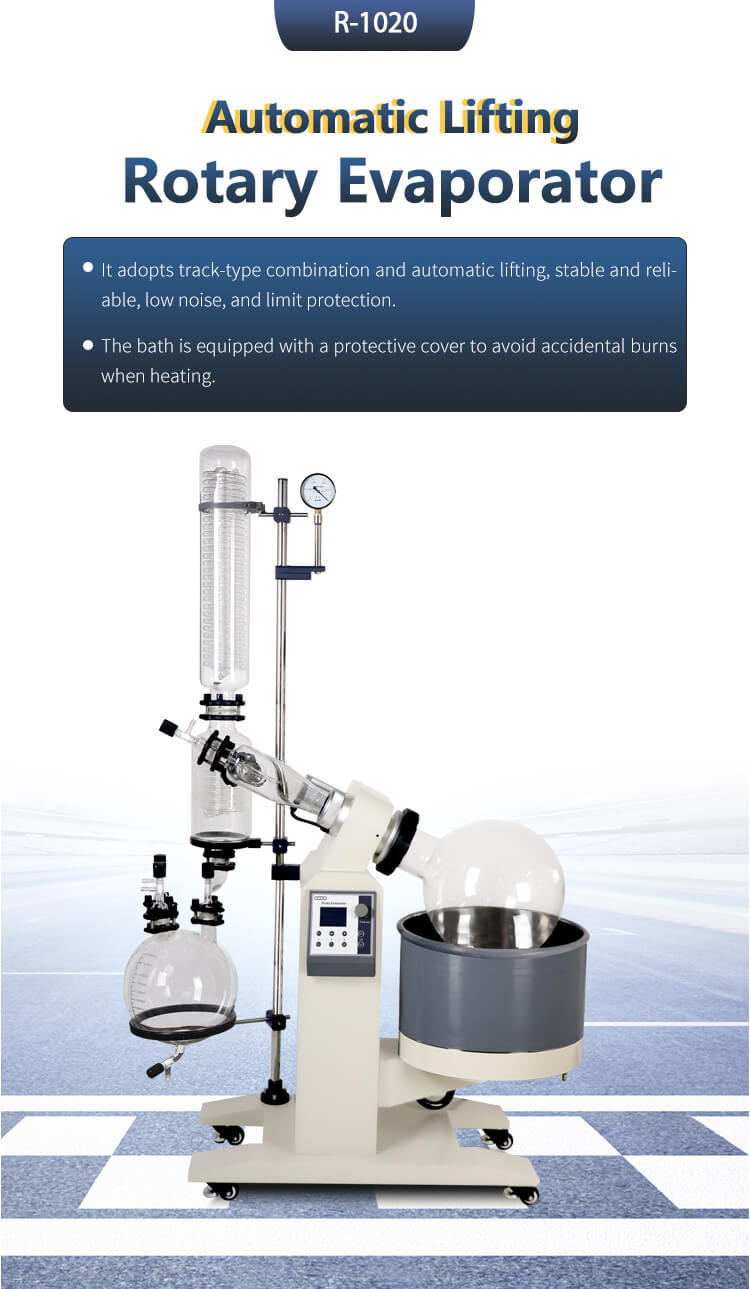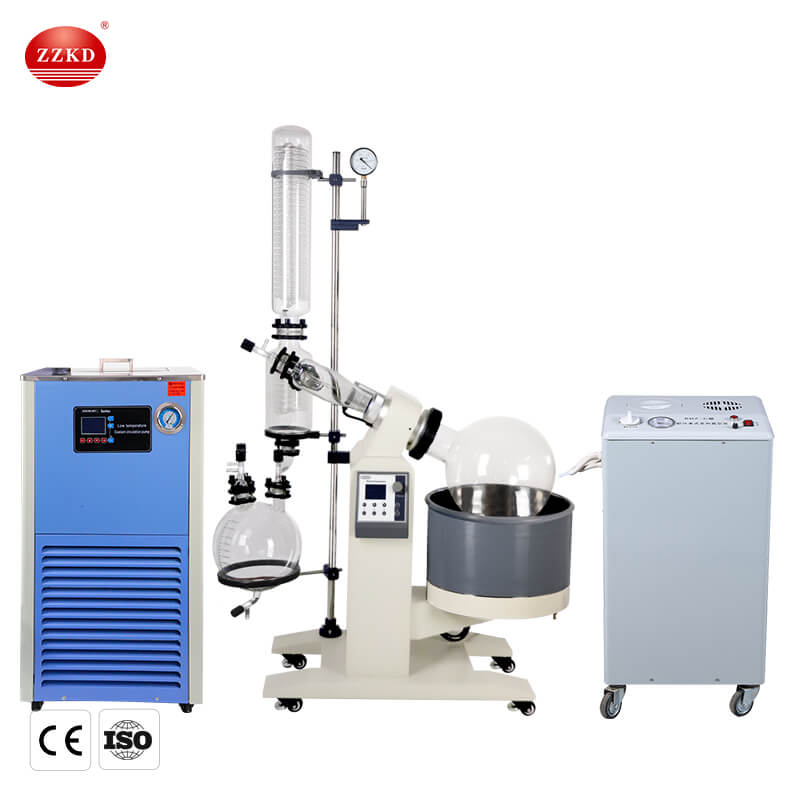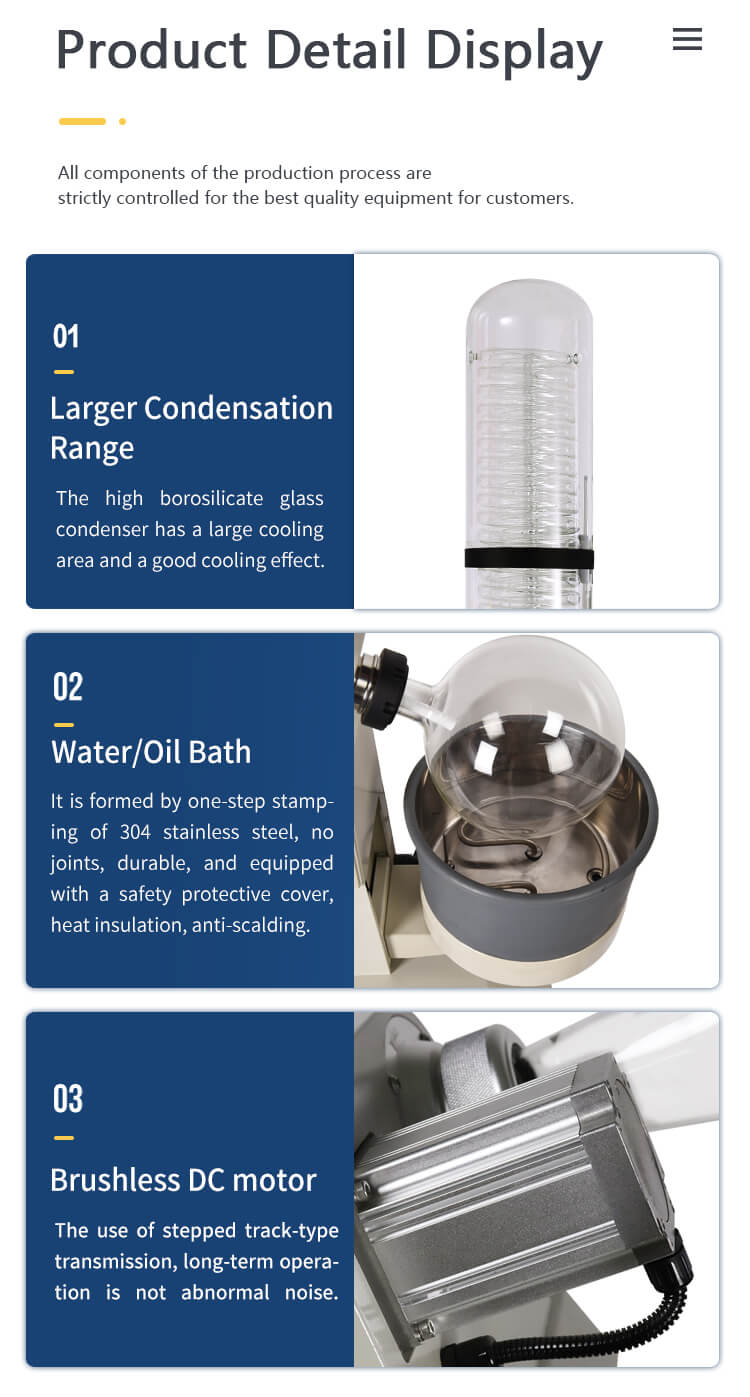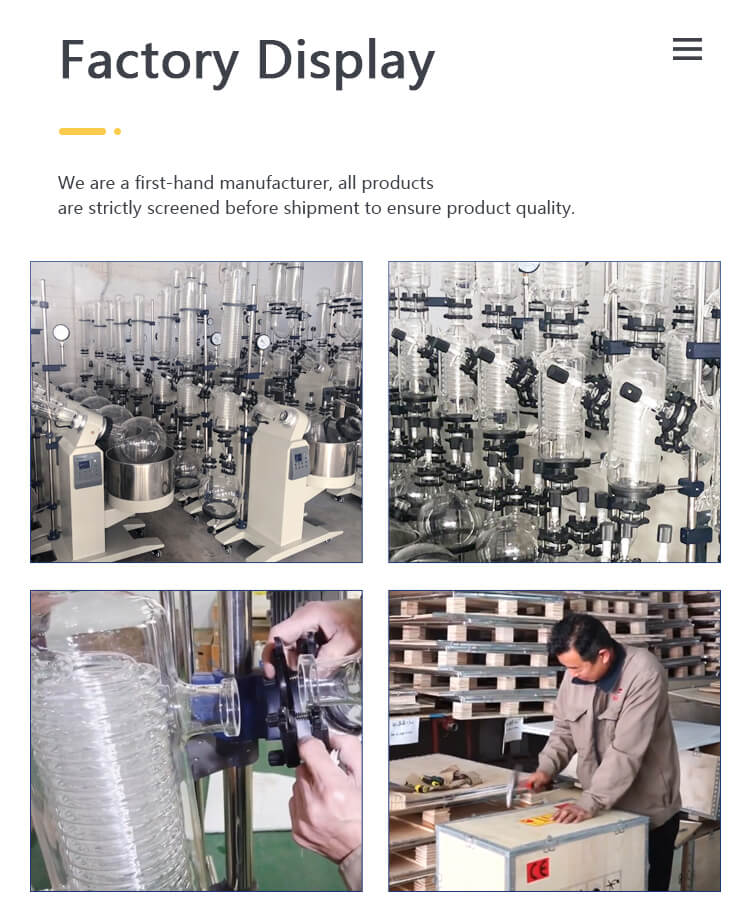Plant extraction is the process of isolating and purifying active compounds from plant material. These compounds can then be used in a variety of applications, including medicine, cosmetics, and food. One of the most common methods of plant extraction is using a rotary evaporator.

A rotary evaporator is a device used to remove solvents from a mixture through evaporation. The mixture is placed in a flask and rotated under vacuum, which lowers the boiling point of the solvent and allows it to evaporate more quickly. The vapor is then condensed and collected in a separate flask, leaving behind the extracted compounds.
The Benefits of Using a Rotary Evaporator for Plant Extraction
There are several benefits to using a rotary evaporator for plant extraction. First, it allows for gentle and efficient extraction of plant material, as the low boiling point of the solvent prevents the degradation of the active compounds. Second, it is a highly versatile tool that can be used with a wide range of solvents and plant materials. Finally, it is a relatively simple and easy-to-use method that requires minimal technical expertise.

The Process of Plant Extraction Using a Rotary Evaporator
The process of plant extraction using a rotary evaporator typically involves the following steps:
Preparation of Plant Material: The plant material is harvested, cleaned, and dried prior to extraction. It is important to use high-quality plant material to ensure the purity and potency of the extracted compounds.
Extraction of Plant Material: The plant material is ground into a fine powder and mixed with a solvent, such as ethanol or hexane. The mixture is then placed in a flask and stirred for several hours to allow the solvent to extract the active compounds.
Separation of Solvent and Extracted Compounds: The mixture is then placed in a rotary evaporator and rotated under vacuum. The solvent evaporates and is collected in a separate flask, leaving behind the extracted compounds.
Purification of Extracted Compounds: The extracted compounds may be further purified using chromatography or other methods to remove any impurities and isolate the desired compound.

A Case of Plant Extraction Using a Rotary Evaporator
Acme Botanicals is a small business that specializes in producing natural remedies and cosmetics made from plant extracts. Their products have gained a loyal following due to their effectiveness and purity, but as the business grows, they are looking for ways to increase efficiency and reduce costs.
Acme Botanicals has been using traditional methods of plant extraction, which are time-consuming and require a lot of labor. They have been considering investing in a rotary evaporator to streamline their extraction process and improve the quality of their products.
After doing some research, they decide to purchase a rotary evaporator from a reputable manufacturer. The manufacturer provides them with a demonstration of how to use the equipment, as well as training on best practices for plant extraction.
Acme Botanicals begins using the rotary evaporator in their extraction process and immediately sees improvements. The rotary evaporator is able to extract the active compounds from plant material more efficiently, resulting in higher yields and less waste. The extracted compounds are also of higher quality, as the low boiling point of the solvent prevents degradation.
With the rotary evaporator, Acme Botanicals is able to increase their production capacity and reduce labor costs. They are also able to improve the quality of their products, leading to increased customer satisfaction and sales.
As a result of these improvements, Acme Botanicals is able to expand their product line and offer new products made from a wider range of plant extracts. They are also able to enter new markets, such as the pharmaceutical industry, where purity and potency are highly valued.

Plant extraction using a rotary evaporator is a highly effective and versatile method of isolating and purifying active compounds from plant material. It is a relatively simple and easy-to-use process that can be used with a wide range of solvents and plant materials. By using a rotary evaporator, researchers and manufacturers can ensure the purity and potency of their plant extracts, which can then be used in a variety of applications.





